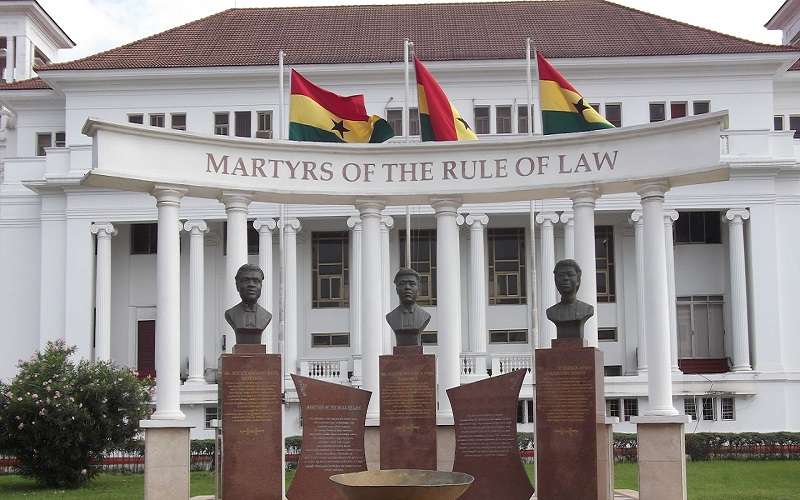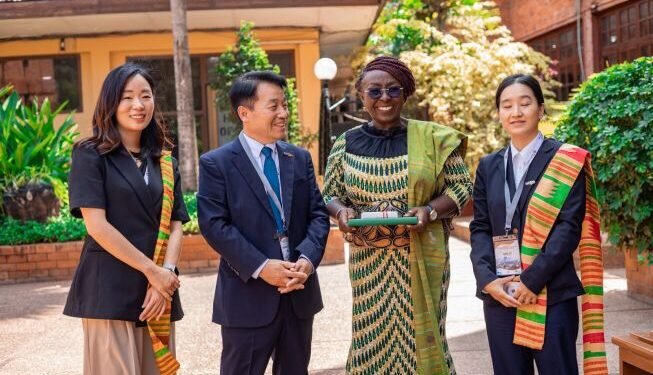In a detailed legal commentary, constitutional law expert and Democracy and Development Fellow at CDD-Ghana, Prof. Stephen Kwaku Asare, has clarified the recent Supreme Court decision concerning broadcaster Kevin Taylor, stating that the ruling was a firm reinforcement of the rule of law, not an endorsement of insults.
Prof. Asare’s remarks followed a wave of public criticism after the Supreme Court quashed an arrest warrant issued for Taylor.
The warrant stemmed from a contempt of court charge brought by Justice Eric Kyei-Baffour of the Court of Appeal, sitting as an additional High Court judge. According to Asare, the backlash misrepresents the legal significance of the ruling.
He explained that some reactions to the Supreme Court’s decision amount to “faux outrage” driven by misunderstandings.
Critics have suggested that the apex court condoned offensive speech by quashing the contempt charge. Prof. Asare, however, was unequivocal in stating that this interpretation is both “misguided and misleading.”

“Let’s be clear: No rational person, and certainly no rational court, endorses insults as a form of civil discourse. The SC has likely not ruled on whether the alleged video was scandalous, offensive, or contemptuous.
“It most likely did not go into the merits of the video or the conduct. What it did, and rightly so, was to address the propriety and legality of the High Court’s order.”
Prof. Stephen Kwaku Asare
This, he clarified, lies at the heart of any certiorari application. The objective is not to pass judgment on the guilt or innocence of the individual involved, but rather to assess whether the lower court acted within the limits of its legal authority and adhered to proper judicial procedure.
It serves as a safeguard to ensure that decisions are made lawfully, without bias or overreach.
Bias, Overreach, And Constitutional Breach
According to Prof. Asare, the original warrant issued by Justice Kyei-Baffour was fraught with legal and constitutional violations. The language used in the order, he argued, displayed unacceptable levels of bias and judicial impropriety.
In the controversial ruling, the judge described Kelvin Taylor as a “scoundrel” and stated the warrant would last “until he expires from the surface of the earth.”
Prof. Asare pointed out that such language is inflammatory and undermines the dignity of the judiciary more than any insult could.
He listed several reasons why the Supreme Court had no choice but to annul the warrant, noting that there was a blatant violation of due process.
He pointed out that Taylor, the accused, was not given the opportunity to be heard, which contradicts Article 19(2) of the Constitution. Contempt proceedings that occur outside the courtroom (ex facie curiae) must follow strict procedural safeguards, including formal notice and the right to respond.
Prof. Asare also noted that the judge used prejudicial and unprofessional language, casting doubt on his impartiality. Phrases like “scoundrel” and the exaggerated expiration reference painted a picture of personal vendetta rather than lawful adjudication.
“The High Court has no extraterritorial jurisdiction to arrest someone outside Ghana without invoking formal extradition processes; The judge purported to bind executive agencies (IGP, BNI, National Security) to effect an arrest without due process, violating the separation of powers.”
Prof. Stephen Kwaku Asare

He further highlighted a serious procedural irregularity, noting that the judge assumed the roles of complainant, prosecutor, and adjudicator in the same matter—a clear violation of Article 296 of the Constitution, which demands that discretionary powers be exercised fairly and without prejudice.
According to Prof. Asare, this concentration of authority undermines the core principles of natural justice.
He also criticized the arrest warrant’s indefinite language, arguing that its open-ended nature made it unconstitutional. Judicial orders, he stressed, must be governed by clearly defined legal limits and timelines—not personal sentiments or emotional reactions.
“Court orders cannot operate on the basis of vendetta,” he implied, “but must reflect procedural discipline and constitutional integrity.”
Prof. Asare also drew attention to the judge’s questionable reliance on Article 126(2), which grants the courts authority to punish for contempt.
While this provision empowers the judiciary to preserve its dignity, he maintained that it cannot be used to bypass a citizen’s fundamental right to a fair hearing. The contempt powers, he insisted, must always be exercised within the framework of due process.
Citing the Supreme Court’s own precedent in Republic v. Mensa-Bonsu & others; Ex parte Attorney-General (1995-96), he reinforced the idea that contempt jurisdiction is not a license for abuse.
Rather, the apex court has consistently emphasized the importance of exercising such powers with restraint, fairness, and respect for constitutional safeguards.
Supreme Court Reaffirms Rights, Defends Due Process
Prof. Kwaku Asare further summarized that the Supreme Court’s decision was not groundbreaking but rather a clear-cut application of constitutional norms.
These principles encompass the essential pillars of judicial conduct—impartiality, adherence to due process, and respect for the boundaries of judicial authority.

Legal systems within the common law tradition have repeatedly overturned court decisions that disregard these foundational standards, and this instance aligns with that broader pattern.
“Bottom line is the SC’s decision is not an endorsement of insult. It is an endorsement of the rule of law, the right to a fair hearing, and judicial restraint. Let’s not pretend that anger at an insulter justifies judicial overreach. Today it’s Kevin Taylor. Tomorrow it could be you. That is why even the foul-mouthed are entitled to due process.”
Prof. Stephen Kwaku Asare
Accordingly, he underscored that defending constitutional protections—even for individuals whose actions or speech may provoke public outrage—is not a flaw in the system, but rather a powerful affirmation of Ghana’s democratic maturity.
Ensuring that due process applies universally, regardless of a person’s popularity or conduct, reflects a legal system grounded in fairness, justice, and the rule of law.
This, he argued, is not a weakness but a vital indicator of the nation’s commitment to its constitutional values.
READ ALSO: GCB Bank Dominates GSE Trading with Over 498K Shares Moved






















